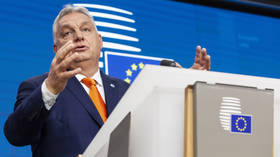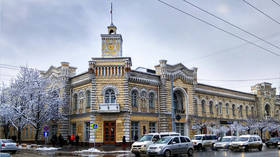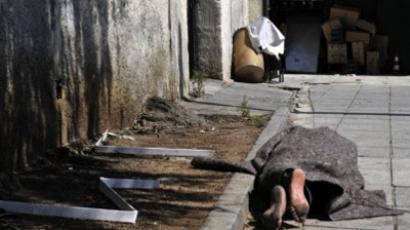‘European Central Bank should bailout EU states directly’
There should be drastic changes in how and by whom the EU’s economic problems are dealt with, economy experts told RT.
“Currently banks are borrowing at very low interest rates, at 1.5 percent, from the [European Central Bank] and then lending it at very high rates to countries like Greece, Italy or Spain,” said German financial analyst Fabio De Masi. “We cannot support that more taxpayers’ money is poured into that black hole, so we are saying basically the ECB should directly finance these countries at very low interest rates and then there would be at least an option to get these countries back on the growth path.”It is those who benefit from the ongoing economic crisis, and not the population, who should finance the European bailouts, he added. “You just have to face the question, ‘who is financing that [bailout] program?’, and basically those who benefit from the crisis have to be taxed in order to finance the thing,” he said. “What is happening now is basically that they are going to ratify the European Financial Stability Facility and afterward, Greece will declare its bankruptcy and then all the risks are borne by taxpayers.” According to Pawel Swidlicki, a researcher and analyst with the Open Europe organization, current bailout policies contradict the main principles upon which the Eurozone was built, and this fact undermines the union from within. “When the Eurozone was being established, it was sold to the people, especially in Germany, on the basis that there would be no bailouts, that the northern states would not be bailing out the southern members,” he said. “Now that this cat is out of the bag, I think it will be very difficult to bring together the necessary political will to keep it together.”
The Eurozone is doomed because it is impossible to have economies like Greece and Germany in one monetary block, argued European Parliament member William Dartmouth.“The markets are making it very clear, not least today, that political will on its own is not enough,” said Dartmouth, a Parliament member from the UK Independence Party. “There has to be an economic justification. The fact of the matter is that you simply cannot put an economic powerhouse like Germany and a country like Greece, which is rather less of an economic power, into the same currency block, with the same monetary policy. It just does not work, and it is going to fall apart.”














